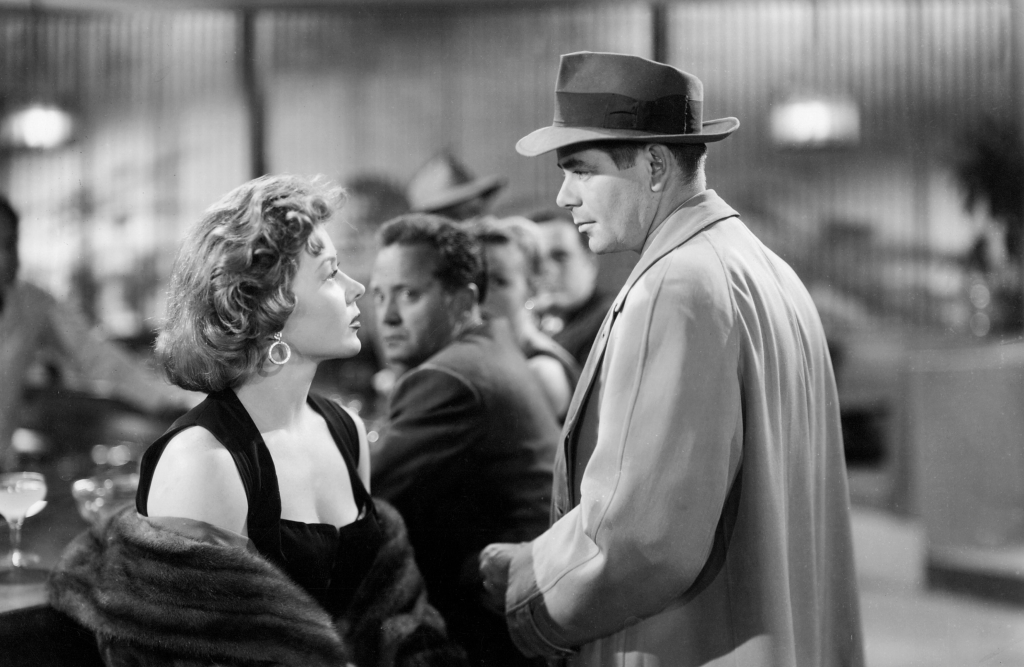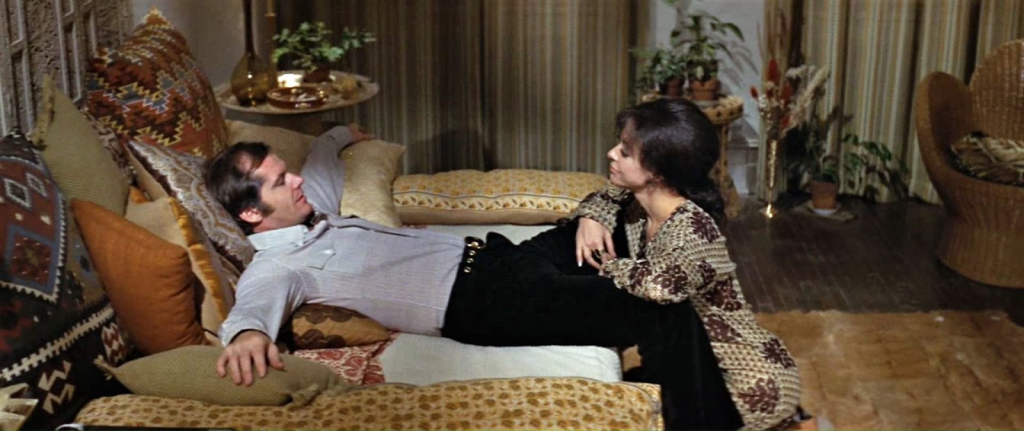In the peak of Summer, Criterion brings in four new films while re-releasing a Stanley Kubrick classic and an entire franchise featuring Francois Truffaut’s most famous character. The new films include a shocking American noir, a bold Mike Nichols drama which became a legal case, a moving dramedy about conflicting siblings, and a contemporary masterpiece under the lights of Mumbai. Again, Criterion does not disappoint with this return of already-listed classics and the introduction of new films.

The Big Heat (1953)
Fritz Lang may have made his best Hollywood film with this amazing noir about a detective (Glenn Ford) who investigates the death of another officer and uncovers a complete crime syndicate. It raises the stakes compared to previous noir films with more shocking violence, famously featuring a woman getting attacked with boiling coffee, and the raw feeling of anger against the blatant corruption within the police. Gloria Grahame plays the non-typical femme fatale, and Lee Marvin thrives as the sleazy cop who uses brute force to get his way.

The Adventures of Antoine Dotel (1959-1979)
Francois Truffaut made his most famous character, loosely based on himself, and played by Jean-Pierre Leaud in all five films with Dotel. First came The 400 Blows, which made Truffaut and Leaud world famous, followed by the short film Antoine and Colette, the story about Dotel’s first love. Stolen Kisses features the character’s misadventures following a poor stint in the military, which matches the youthful times in France in 1968, followed by Bed and Board, which introduces Dotel to marriage and fatherhood. Truffaut’s final chapter, Love On The Run, brings Dotel fully into adulthood as a divorced man with a career in writing who falls in love again while also having to confront everything that has happened leading up to this.

Carnal Knowledge (1971)
When a movie goes to the Supreme Court, you know it was so controversial; they had to determine what is considered obscene versus protection under the First Amendment. They ruled it as not obscene (thankfully), as the subject is all about sex and how shocking it was, so frank about it for the time. It’s a stunning portrait by director Mike Nichols about two friends (Jack Nicholson and Art Garfunkel) and their relationships with women, being callous about what they think a woman is and what they want in relationships with them. Candice Bergen, Ann-Margaret, Rita Moreno, Carol Kane, and Cynthia O’Neal star in this ensemble that cashed in on the continuous sexual revolution of the 1970s.

Barry Lyndon (1975)
This new re-edition of the Stanley Kubrick masterpiece maintains its engrossing story and striking images from William Makepeace Thackeray’s novel. Some of the most impressive cinematography in cinema, with its candlelight lighting and amazing set designs, stands the test of time, fifty years after its release. Ryan O’Neal’s performance as the titular character remains the best of his career, as the lucky exploitative sneakily rises the aristocratic ladder to near full power while everyone looks on.

You Can Count On Me (2000)
Kenneth Lonergan made his directorial debut with a complex view of two siblings (Laura Linney & Mark Ruffalo) who come together after being apart for years. A single mother having an affair must deal with her loner brother who comes back home after being in jail, rehashing past problems that could break the relationship permanently. Lonergan’s poignant writing, with stellar performances by Linney, Ruffalo, Matthew Broderick, Jon Tenney, and Rory Culkin, makes this film a standout from the first year of the new millennium and would carry on with Lonergan’s Oscar-winning Manchester By The Sea years later.

All We Imagine As Light (2024)
One of the best films of the past year is India’s Payal Kapadia’s narrative-feature debut about three Indian women (Kani Kusruti, Divya Prabha, Chhaya Kadam) in Mumbai, and where their future lives lie. The pressure of gentrification and expectations for marriage lead them to a trip away from their problems and to confront their lasting secrets. Kapadia won the Grand Prix at Cannes last year for this extraordinary movie that deserved more awards recognition during the Oscar race last year; then again, it did lose to Anora for the Palme d’Or en route to winning the Oscar for Best Picture (and also being released by Criterion).
Follow me on BluSky: @briansusbielles.bsky.social





